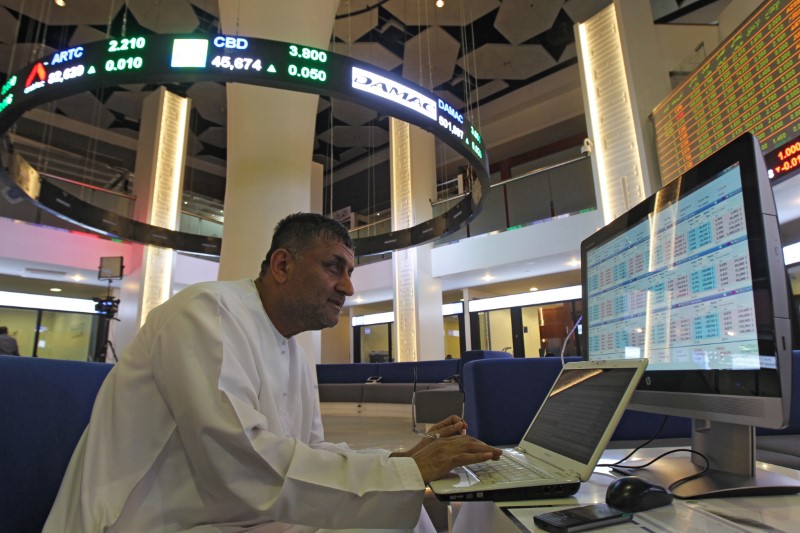By Nafisa Eltahir
DUBAI (Reuters) - Middle Eastern fund managers plan to increase investments in Egypt in the current quarter, according to a Reuters poll, and say Saudi Arabia and the United Arab Emirates are most vulnerable to tumbling oil prices and the coronavirus pandemic.
The region, which is mostly under lockdown as it deals with the outbreak, is home to many oil producers, who have seen the price of their main resource tumble as they spend to help support their economies.
"Overall we expect the combination of COVID-19 and low oil prices to weigh on regional GDP growth, stress some of the weak corporate balance sheets and filter into earnings downgrades over the next few quarters," said Mohamed Eljamal of Waha Capital.
Dubai, whose stock index (DFMGI) has fallen 27% this year, has been the worst-hit Gulf market, as a coronavirus-related shutdown choked its tourism and aviation industry.
The main index in oil producer Abu Dhabi (ADI) is down nearly 17% this year as well.
The majority of the managers said that the UAE, and particularly Dubai, would be the market worst hit by the coronavirus crisis.
However, the managers point to a rebound in share prices this month as evidence that some stocks are now seen as undervalued, and that investments pulled out of harder-hit sectors are finding new homes.
Four of the seven managers polled said they would still increase their allocations in the UAE this quarter. Dubai is up about 14% since March 31, and Abu Dhabi is up 13%.
Managers said they had pulled out of stocks in the tourism, trade and service sectors.
"We have instead purchased some fundamentally strong names with strong balance sheets across markets which we think were unfairly punished due to a combination of corona and oil slump," said Richard Lee, Senior Portfolio Manager, Emirates NBD Asset Management.
Eljamal said: "We have ... significantly raised cash and (are) currently ready to hunt for bargains over the next few months."
Most managers said that Saudi Arabia would be the market most affected by the oil price slump.
Data this week showed Saudi central bank foreign reserves had fallen in March at their fastest rate in at least 20 years and to their lowest since 2011, while the kingdom slipped into a $9 billion budget deficit in the first quarter.
Four of the seven polled said they would keep their levels of allocation steady for the upcoming quarter, although at least one had reduced levels in the last quarter.
The Saudi stock index (TASI) is down 15% year-to-date, but up around 9% this quarter.
Despite reducing exposure to vulnerable stocks in the petrochemical sector, "it also gave us an opportunity to invest in interesting names that were earlier trading at lofty valuations but are trading at more reasonable valuations now", said Lee.
The majority of fund managers polled said they would increase their allocations in Egypt, despite that market's exposure to coronavirus due to its dependence on tourism and remittances from the Gulf.
Despite losing almost a quarter of its value this year, Egypt's main (EGX30) index is up 10% this quarter.
One manager polled said that, although Egypt was exposed, it is one of the few countries that could potentially register positive growth this year, because of foreign reserves and credit lines with international financial institutions.
Earlier this week, Egypt said it had asked the IMF for financial support to help it deal with the coronavirus crisis.
